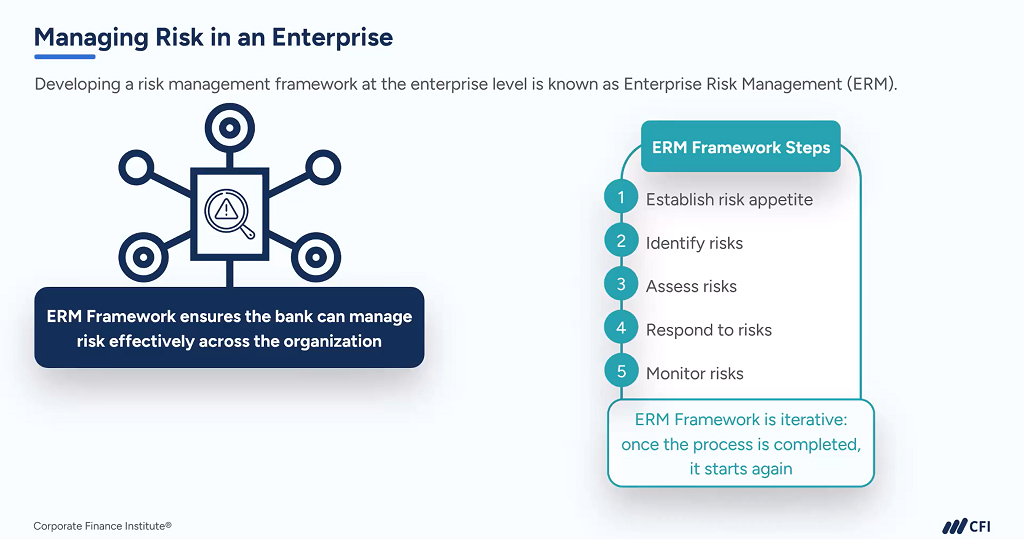Exploring the Significance of Risk Management for Effective Decision-Making Techniques
In the intricate world of company, Risk Management emerges as an important factor in the decision-making process. The capacity to recognize prospective hazards and opportunities, and strategize appropriately, can mean the difference in between success and failure.
Understanding the Idea of Risk Management
Risk Management, a crucial part in decision-making, is typically misinterpreted or oversimplified. Typically, it describes the identification, examination, and prioritization of dangers to minimize, monitor, and regulate the probability or impact of regrettable events. Nevertheless, it's not just regarding preventing adverse outcomes, yet additionally regarding identifying possible chances. Risk Management entails organized and regimented strategies, utilizing information and informative evaluations. It calls for a comprehensive understanding of the organization's context, purposes, and the prospective risks that might obstruct them. From monetary unpredictabilities, lawful obligations, critical Management mistakes, to mishaps and natural disasters, it resolves various risks. Significantly, reliable Risk Management is not stagnant; it's a continual, forward-looking process that progresses with transforming situations.
The Function of Risk Management in Decision-Making Processes
In the world of critical planning and company procedures, Risk Management plays an indispensable role in decision-making procedures. It helps in determining potential dangers and unpredictabilities that might impact the success of service purposes. By tracing these risks, companies can develop techniques to reduce their impact, making sure business connection and security. Risk Management thus comes to be a vital tool in decision-making, helping leaders to make educated options based upon a detailed understanding of the threats included. It encourages a positive strategy, making it possible for companies to prepare for and prepare for feasible future situations. This significantly minimizes the likelihood of unfavorable consequences, advertising much more effective and efficient decision-making methods. As a result, Risk Management serves as a vital component in the decision-making procedures of any kind of organization.

How Risk Management Boosts Strategic Preparation
In the context of tactical planning, Risk Management plays a pivotal duty. Launching with the recognition of potential dangers, it better encompasses the implementation of Risk mitigation procedures. The function of Risk Management is vibrant yet not static, as it demands continuous surveillance and adjusting of strategies.
Identifying Possible Threats

Carrying Out Risk Mitigation
Risk mitigation techniques can vary from Risk avoidance, Risk transfer, to take the chance of decrease. Each approach should be customized to the particular Risk, considering its possible impact and the organization's Risk tolerance. Reliable Risk reduction needs a deep understanding of the linked here Risk landscape and the prospective impact of each Risk.
Tracking and Adjusting Techniques
Though Risk mitigation is a vital step in calculated preparation, constant surveillance and change of these approaches is equally important. It likewise supplies an opportunity to examine the success of the Risk Management procedures, allowing adjustments to be made where essential, more enhancing calculated planning. Tracking and readjusting Risk Management strategies is a crucial part for enhancing a company's strength and critical planning.
Case Studies: Successful Risk Management and Decision-Making
In the globe of company and finance, effective Risk Management and decision-making often serve as the columns of thriving enterprises. These situations highlight the worth of astute Risk Management in decision-making procedures. These cases emphasize the important Web Site function of Risk Management in strategic decision-making.
Devices and Techniques for Reliable Risk Management
Browsing the detailed labyrinth of Risk Management calls for the best collection of strategies and devices. These tools, such as Risk registers and warm maps, aid in recognizing and assessing prospective risks. Techniques include both quantitative approaches, like sensitivity evaluation, and qualitative methods, such as SWOT evaluation. These aid in focusing on dangers based on their potential impact and probability. Risk action methods, a crucial part of Risk Management, involve approving, avoiding, transferring, or mitigating dangers. Tracking and managing dangers, through routine audits and testimonials, ensure that the methods remain reliable. With these tools and strategies, decision-makers can navigate the facility landscape of Risk Management, therefore promoting notified and efficient decision-making.
Future Trends in Risk Management and Decision-Making Techniques
As we explore the large landscape of Risk Management, it becomes obvious that the strategies and devices see post used today will certainly continue to advance. Future trends point in the direction of an increased dependence on modern technology, with fabricated intelligence and machine learning playing considerable functions. These technologies will certainly make it possible for organizations to forecast possible dangers with higher precision and make more educated choices. In addition, there will certainly be an expanding emphasis on strength, not simply in handling dangers yet additionally in recovering from unfavorable scenarios. The idea of Risk culture, where every member of an organization is aware and entailed in Risk Management, will certainly get more prominence. These patterns declare an even more inclusive and positive strategy in the direction of Risk Management and decision-making.
Verdict

Risk Management thus becomes an essential device in decision-making, helping leaders to make informed selections based on a thorough understanding of the risks included. Risk mitigation strategies can vary from Risk avoidance, Risk transfer, to take the chance of reduction (importance of risk management). Efficient Risk mitigation requires a deep understanding of the Risk landscape and the possible impact of each Risk. Risk reaction strategies, a key part of Risk Management, involve accepting, preventing, transferring, or mitigating risks. The idea of Risk culture, where every participant of a company is aware and involved in Risk Management, will acquire a lot more prominence
 Alicia Silverstone Then & Now!
Alicia Silverstone Then & Now! Charlie Korsmo Then & Now!
Charlie Korsmo Then & Now! Keshia Knight Pulliam Then & Now!
Keshia Knight Pulliam Then & Now! Danica McKellar Then & Now!
Danica McKellar Then & Now! Robbie Rist Then & Now!
Robbie Rist Then & Now!